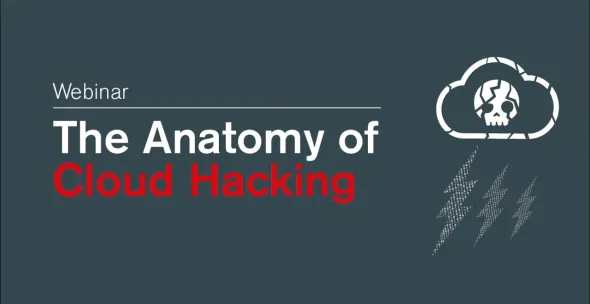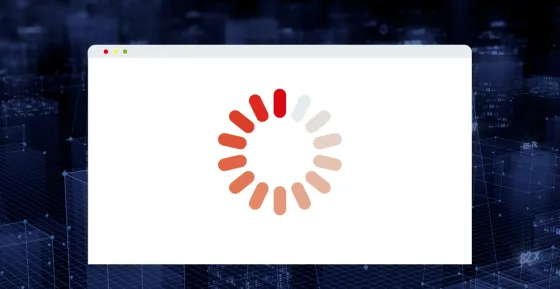What do Taylor Swift and the Böhsen Onkelz have in common? They show us how important load tests are!

Timo Ohlenbostel
Product Manager
Are you a Swifty? Or an ardent supporter of the first hour of a controversial band from Hesse? - Are you? Then perhaps you were affected yourself! If not, imagine that you've been eagerly awaiting this one moment for months and want to get hold of your long-awaited ticket for an unforgettable evening. You registered days ago, sit at your PC or have your mobile phone in your hand on time, queue up digitally to be ready for the final ticket sale ... and then it happens: NOTHING!
Server crashes and massive technical problems due to a lack of resources
This, or something similar, is what happened to thousands to millions of disappointed fans in the years 2023 and 2024. What had happened? Neither the global distribution company Ticketmaster was able to cope with the onslaught of Swifties, nor was the Onkelz website able to cope with the immense demand for tickets sold via Myticket. The expected or unexpected crowds caused the ticket servers to collapse as all the fans tried to buy one or more tickets at the same time. Not to mention any bots that may have been deployed to additionally access the ticket shops.
What happened technically?
The servers have to process all incoming requests and if the available resources are utilised beyond their limit, the servers are overloaded. If a server is overloaded, it can start to process incoming requests with a significant delay or even switch off completely (server timeouts). As a result, in this example, countless interested parties have seen no progress in the ticket shop or have not been able to access the shop at all.
Of course, it has to be said that these cases are almost unprecedented surges. However, they highlight a fundamental problem that can be reflected in various areas: Uncontrollable and also deliberate peaks in demand on web systems, which lead to a collapse in accessibility and massive technical problems.

Too much load on your own servers can cause immense economic damage
An overloaded IT infrastructure can have a direct negative impact on all of a company's business activities. Especially if their business model is mainly dependent on online interactions. Which industries are specifically affected? The question would be too broad to answer in this blog post. You could name almost all known industries or, at the other extreme, it would be difficult to list which business areas are not affected. Even the small farm shop in a village of 800 people in the deepest Black Forest now offers the option of buying freshly laid eggs online via an app and then taking them out in a designated compartment. All so that Grandma Erna doesn't have to keep watch all day. And, of course, to have the convenience of such a process. For example, you can carry out an inventory from the comfort of your couch.
However, the loss of turnover is by no means the only effect, especially if you think one dimension bigger than the farm shop just mentioned. Coming back to the performers mentioned in the title or the companies behind the ticket sales, it is definitely important to list other points as well. The tickets were sold despite the delays and crashes, so much for now.
However, as a result of the technical problems, customers who were very willing to buy were left frustrated, which probably did not develop the brand perception of Ticketmaster and Myticket in a positive way. In our example, the agencies behind the stars are also aware of this. Do they want to risk another shitstorm and angry fans on the next tour? Or do they look around for alternative distribution companies? These are considerations that every company should make, even if they don't sell Taylor Swift tickets. Very few have the privilege of owning an offering that is sure to sell in its entirety. In most cases, your own product is in competition. If a customer is not served, he quickly looks around at the competition and does not come back because of the bad experience.
The missed business opportunities still do not reflect the full extent of the damage. The internal costs, which must be mentioned in addition to the lost sales, must also be taken into account. ERP, CRM or email systems may slow down or fail. This can lead to delays in deliveries, projects may come to a standstill or employees may be idle. The additional break may please some people, but it is actually counterproductive for a company's profitability. And the bottom line is that every employee has an interest, at least in the medium to long term, in ensuring that business operations run smoothly. Other potentially threatening damages are the costs of troubleshooting, customer claims due to a breach of promised SLAs, GDPR/DSGVO violations, a loss of investor confidence or a complete loss of data.
A preventive measure called a load test
To escape the doomsday mood again, it is now time to present a way to prevent the worst-case scenario: Loadtests!
A loadtest is a way of achieving targeted loads on applications and systems and testing how they behave. More precisely, it is a simulation of realistic load conditions on systems in order to identify weak points at an early stage and minimise the associated failures and risks.
But what does this mean in concrete terms? A load test makes it possible to see at which point your own system starts to sweat - whether in the database, the network, the cache or at interfaces to third-party systems. You can see at what number of simultaneous users response times deteriorate, error rates increase or timeouts occur. This data provides important answers to questions that you may not yet have asked yourself: Are we scaling? Are we optimising the queries, do we need a CDN? Is the current infrastructure sufficient for the next campaign? It is important to test realistic scenarios in order to get a realistic picture of the resilience of your own systems. It is not enough to proceed according to a "open page, click login, done" scheme.
It is necessary to simulate real user paths that also vary. This includes, for example, staying on the site for a certain period of time, filtering data, filling a shopping basket or, of course, completing a payment process. All of this also takes into account typical peak times and deliberately set load peaks. A gradual increase in the load shows the point at which the curve tips. Longer running tests reveal creeping problems, such as memory leaks or exhausted connection pools.
A fundamental problem for everyone
The examples of Taylor Swift and the Böhsen Onkelz show spectacularly what can happen during extreme peak loads, but reality catches up with us all much earlier. It's not just global ticket providers that are affected, but even the small farm shop mentioned above - for example, when more orders suddenly come in because a local newspaper reports on it.
This shows that technical problems know no boundaries, neither in terms of company size nor industry. This doesn't just apply to individual cases, but affects almost every business area in our digitally networked world. Regardless of whether the customers of an e-commerce shop storm a discount campaign, patients in the healthcare sector suddenly request doctor's appointments or digital prescriptions, players access a server worldwide or companies want to handle their payment processes - the risk of exceeding the performance limits of their own systems is omnipresent.
The highly visible cases of ticket providers through to sectors such as retail or the food industry show how universal the topic is. The focus here must not only be on surviving the next peaks, but rather on aligning the technical requirements to long-term market utilisation with suitable infrastructure.
Conclusion
A stable system starts with preparation. Regardless of the industry, every company must face up to the reality that the performance limits of its own IT infrastructure may be exceeded sooner or later. The question is not whether these situations will occur, but when they will occur. With targeted load tests and a well thought-out infrastructure, the transition from normal operation to peak times can be controlled and smooth.
Companies that act proactively instead of just reacting not only avoid isolated financial failures, but also secure the trust of their customers, the continuity of their processes and ultimately the success of their brand. These challenges require a partner with the necessary expertise and experience to test systems extensively and make them reliable and scalable. Success without downtime is not an option - it is a necessity that makes the difference between failure and sustainable competitiveness in our networked, digital world.
| Benefits of Claranet's load tests |
|---|
|
Related articles

Ready for Black Friday and Christmas? How to protect your e-commerce platform with pentests & load tests

Why cyber security is a key success factor for your company

How to secure your applications from the ground up

Security Operations Centre (SOC): Basics, costs and benefits

Webinar: The Anatomy of a Cloud Hack
